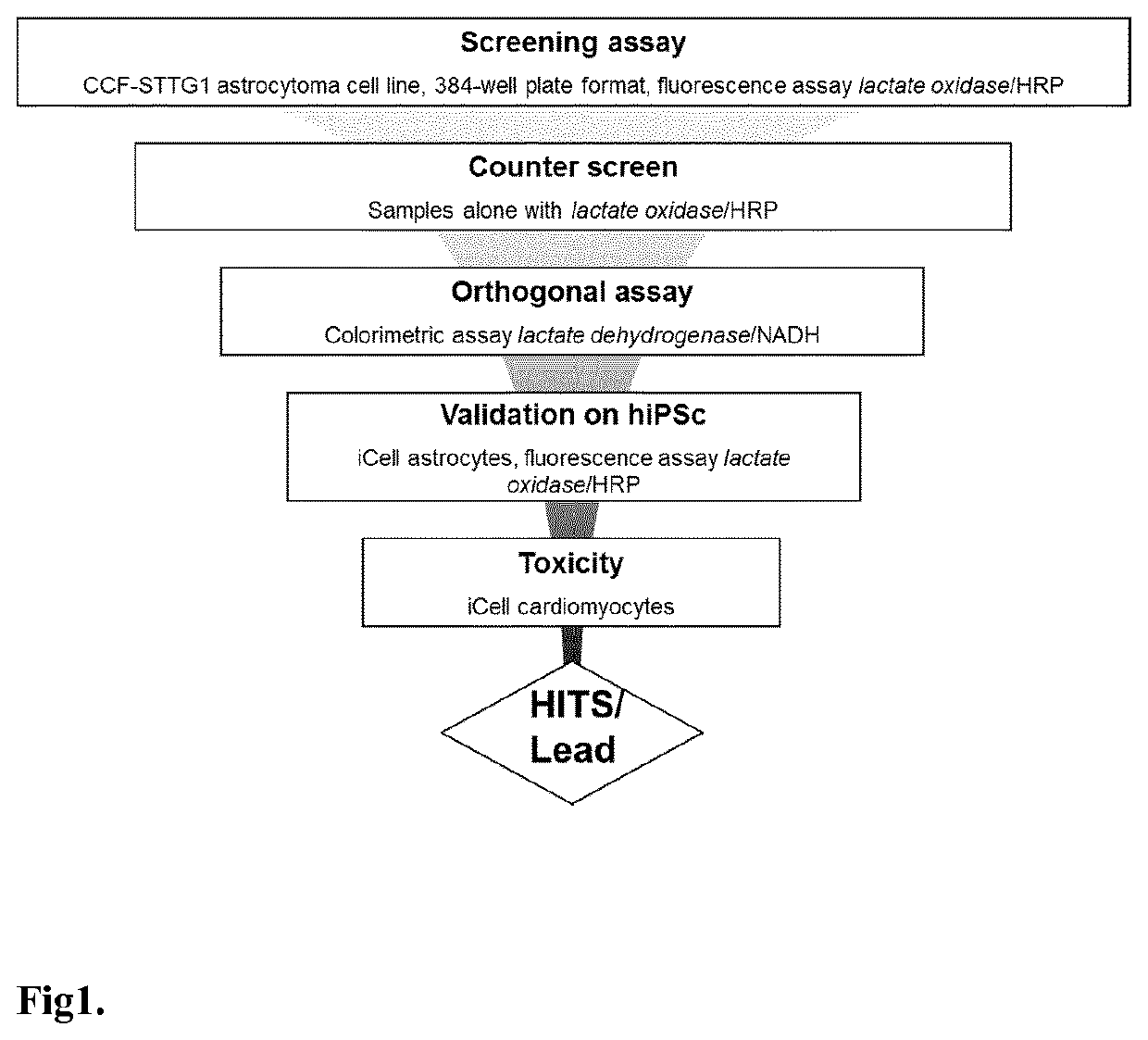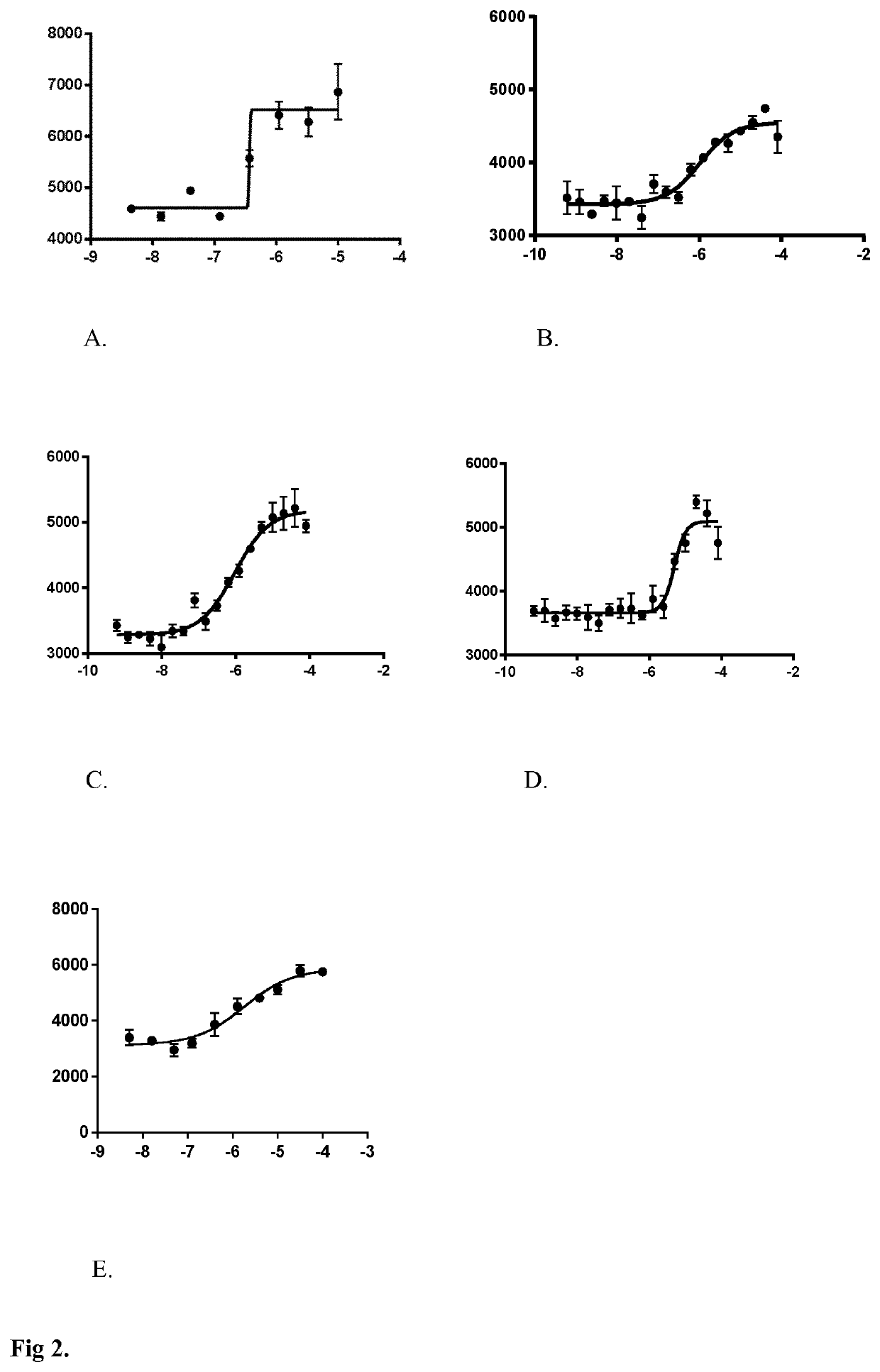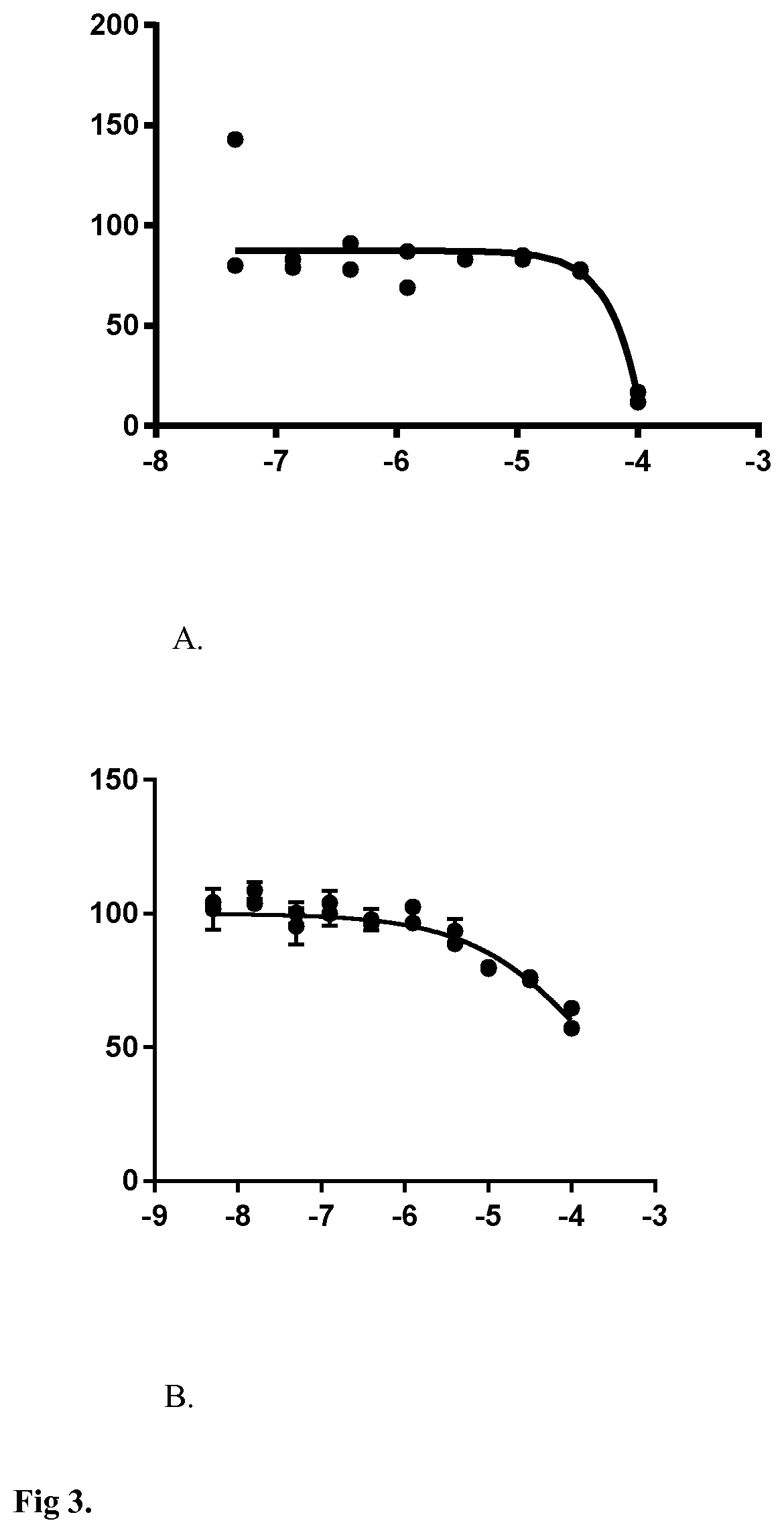Polyketide compound and derivatives thereof for use in the prevention and treatment of a neurological disorder
- Summary
- Abstract
- Description
- Claims
- Application Information
AI Technical Summary
Benefits of technology
Problems solved by technology
Method used
Image
Examples
example 1
Lactate Release—Screening Assay
[0075]FIG. 1 shows the lactate screening strategy and the general workflow of the lactate release from the astrocytes drug discovery screen.
[0076]Human astrocytoma cell line CCF-STTG1 was cultured at 37° C. in a humidified atmosphere (5% CO2) in RPMI-1640 medium supplemented with 10% (v / v) heat-inactivated fetal calf serum, 50 μg / ml penicillin and 100 μg / ml streptomycin.
[0077]CCF-STTG1 were seeded in 384-well plates. Two days later, the cells were washed 3 times and incubated 30 min in Krebs-Ringer bicarbonate HEPES (KRBH) buffer containing (in mM): 140 NaCl, 3.6 KCl, 0.5 NaH2PO4, 0.5 MgSO4, 1.5 CaCl2, 10 HEPES, 5 NaHCO3 (pH 7.4) supplemented with 2.5 mM glucose. Then, the cells were maintained in the buffer in the presence of tested compounds. Supernatants were collected after 2 hours and were assessed for lactate concentration. Lactate concentration in the supernatants were determined by fluorescent enzymatic assay. Samples were diluted in assay reag...
example 2
Lactate Release—Counter Screen Assay
[0079]The compounds were also tested in absence of cells using the same fluorescent enzymatic assay described previously to assess their auto fluorescence or their interaction with the enzymatic assay. Fluorescence emission was measured at 600 nm after an excitation at 500 nm using
[0080]Bioteck Synergie Neo multimode reader after 30 min at room temperature and protected from direct light. Fluorescence was then compared to control fluorescence obtained in basal and stimulated cells.
[0081]For the drug discovery counter screen, compounds diluted in KRBH were assessed for lactate release. The identified unsaturated polyketide or macrocyclic lactone compounds had no effect on the enzymatic assay in the absence of cells.
example 3
Lactate release—Orthogonal Assay
[0082]CCF-STTG1 were seeded in 384-well plates. Two days later, the cells were washed 3 times and incubated 30 min in Krebs-Ringer bicarbonate HEPES (KRBH) buffer containing (in mM): 140 NaCl, 3.6 KCl, 0.5 NaH2PO4, 0.5 MgSO4, 1.5 CaCl2, 10 HEPES, 5 NaHCO3 (pH 7.4) supplemented with 2.5 mM glucose. The cells were maintained in the buffer in the presence of tested compounds. Supernatants were collected after 2 hours and assessed for lactate concentration. Lactate concentration in the supernatant was determined by a spectrophotometric enzymatic assay (lactate colorimetric assay kit II no. K627; BioVision, Milpitas, CA. USA). In this kit, lactate is oxidized by lactate dehydrogenase to generate a product which interacts with a probe to produce a color (λmax=450 nm).
[0083]Absorbance was measure after 30 min at 450 nm using Bioteck Synergie Neo multimode reader. Background absorbance obtained in the absence of kit was subtracted from each value.
[0084]The st...
PUM
| Property | Measurement | Unit |
|---|---|---|
| Volume | aaaaa | aaaaa |
| Volume | aaaaa | aaaaa |
| Volume | aaaaa | aaaaa |
Abstract
Description
Claims
Application Information
 Login to View More
Login to View More - R&D
- Intellectual Property
- Life Sciences
- Materials
- Tech Scout
- Unparalleled Data Quality
- Higher Quality Content
- 60% Fewer Hallucinations
Browse by: Latest US Patents, China's latest patents, Technical Efficacy Thesaurus, Application Domain, Technology Topic, Popular Technical Reports.
© 2025 PatSnap. All rights reserved.Legal|Privacy policy|Modern Slavery Act Transparency Statement|Sitemap|About US| Contact US: help@patsnap.com



